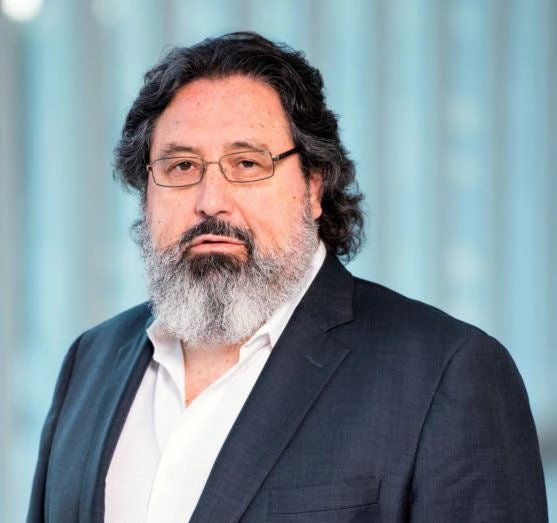On May 31, the global health community will mark World No Tobacco Day 2015. This year’s theme focuses on the public health priority of stopping the illicit trade of tobacco products. Perhaps this is a good occasion to clarify that raising tobacco taxes to make this habit-forming product unaffordable is not the cause of illicit trade. Let me explain.
The benefits of higher tobacco taxes are obvious, both in terms of good health outcomes for individuals and entire communities, which result from reduced consumption of tobacco products. In particular, this policy measure should be seen as a key strategy relevant for all countries to reduce the growing burden of non-communicable diseases. In addition, hiking tobacco taxes can help expand a country’s tax base to mobilize additional revenue to fund vital health programs and other essential public services that benefit all of us, even in the presence of cigarette smuggling. In the post-2015 period, increased tobacco taxation (along with other “sin taxes”) could also represent an important domestic revenue stream for helping finance the UN’s Sustainable Development Goals (SDGs) across the world, which will build upon the Millennium Development Goals (MDGs).
One of the main arguments often raised by the tobacco industry and other parties against the adoption of tax increases on tobacco products is the threat of illicit trade. Accumulated international experience, however, demonstrates that this argument is flawed.
Tobacco taxes are not the primary reason for cigarette smuggling and cigarette tax avoidance. Despite high cigarette prices due to high taxes in high-income countries, illicit trade is much less common in these countries than in low-income countries with low tobacco taxes. Indeed, many countries, such as the United Kingdom, or various states in the United States, have increased tobacco taxes significantly without experiencing major changes in illicit trade.
While high taxes may create incentives for illicit trade, evidence indicates that other factors have a much bigger effect on illicit trade of tobacco products. The trade thrives where the potential for illicit gains is high, and the risk to illegal operators is low. More specifically, as noted in a new report by the World Health Organization (WHO), factors driving illicit trade include: the ease and cost of operating in a country, tobacco industry participation, sophistication of crime networks, and low capacity in a nation’s tax administration system, and the likelihood of being caught and punished.
Also, as documented by the U.S. Government Accountability Office, where cigarette packs in the United States are taxed at varying rates at the state level, criminal enterprises have incentives to engage in cross-border and illicit schemes to profit or take advantage of these tax rate differentials.
What to do? Experience shows that these illegal activities can be controlled by legal means (e.g., use of prominent tax stamps, serial numbers, special package markings, health warning labels in local languages, adoption of uniform tax rates nationwide that facilitate successful collection at the points of manufacture and import), and by increased law enforcement (e.g., improving corporate auditing, better trace and tracking systems, and good governance). For example, since Her Majesty’s Revenue and Customs’ (HMRC) “Tackling Tobacco Smuggling” Strategy was introduced in the U.K. in 2000, the size of the illicit cigarette market has been cut by almost half, with more than 20 billion cigarettes and over 2,700 tons of hand-rolling tobacco seized. Additionally, the U.K. has seen more than 3,300 criminal prosecutions for tobacco offences following action by law enforcement officers. In Chile, a country that has one of the highest tax rates on cigarettes in the world, with taxes accounting for 78% of the price of each pack, the government has also experienced increased success in seizures of smuggled tobacco products. This has affected the country’s tobacco supply and is helping curtail the slight growth in illicit trade observed after a 2013 increase in tobacco prices.
After making the above argument on the need to delink tobacco taxation from illicit trade in policymaking discussions, it needs to be acknowledged that illicit trade of tobacco products is both a major health and fiscal challenge that merits urgent attention and action by governments across the world.
According to WHO research, one in every 10 cigarettes might be illicit. From a health perspective, increased availability and affordability of untaxed and inexpensive cigarettes puts more people at risk of being harmed because of increased smoking, addiction to a deadly product, and the resulting ill health, premature mortality and disability associated with tobacco-related diseases. From a fiscal perspective, illicit tobacco trade only benefits a few (often criminal enterprises) at the cost of forgone tax revenues for the government, which results from taxes not being paid on tobacco products.
Ratification of the Protocol to Eliminate Illicit Trade in Tobacco Products, which is a supplementary treaty to the WHO Framework Convention on Tobacco Control (FCTC), is a critical first step to confront this global health, economic and social scourge. The Protocol is now open for ratification, acceptance, approval, formal confirmation or accession by all Parties to the WHO FCTC. So far, eight countries have ratified it (Gabon, Mongolia, Nicaragua, Spain, Turkmenistan and Uruguay). Thirty-two additional country ratifications are needed to make this Protocol an international law.
On World No Tobacco Day 2015, let’s all advocate and encourage lawmakers --from across the political spectrum in our respective countries-- to ratify and implement the Protocol to Eliminate Illicit Trade in Tobacco Products, in spite of the strong opposition from the tobacco industry. Lives and the social well-being of nations depend on it!
Follow the World Bank health team on Twitter: @WBG_Health
Related:
Illegal trade of tobacco products: What you should know to stop it (WHO)
WHO video: World No Tobacco Day 2015
Illicit Tobacco: Various Schemes Are Used to Evade Taxes and Fees (GAO)
Tackling Tobacco Smuggling–Building on Our Success (UK)
Euromonitor International Country Report: Tobacco in Chile
The Protocol to Eliminate Illicit Trade in Tobacco Products: An overview
PAHO Video: Día Mundial Sin Tabaco 2015 Alto al comercio ilícito de productos de Tabaco



Join the Conversation